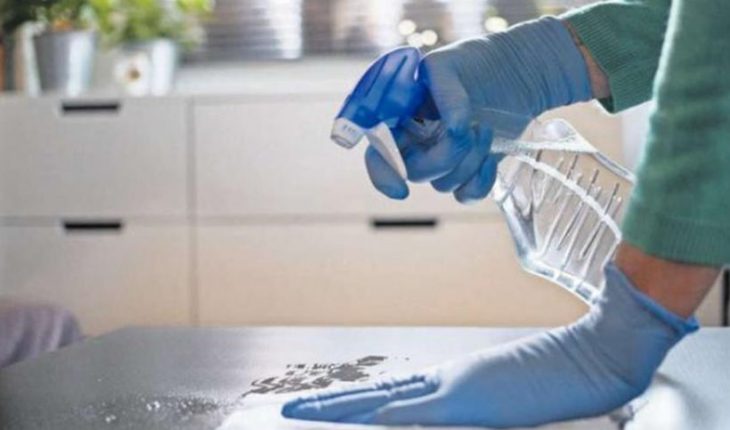The pandemic has profoundly changed the cleansing habits of people, who today are much more rigorous with disinfection in their homes and the places where they occur. However, excessive or incorrect use of disinfectants such as chlorine, quaternary ammonium and others based on alcoholic molecules can have very unfavorable consequences.
This was confirmed to hoyxhoy by Professor Claudio Figueroa, PhD in Biological Sciences and academic at San Sebastian University, who argued that today “there is a general concern about the capabilities that microorganisms have acquired to counteract certain protocols that one has to control them. The most complex cases are those in place with antibiotics. But it has also been seen, generally more in the hospital, that bacteria have also acquired the ability to better resist commonly used disinfectants.”
The reason? “Bacteria, as they multiply faster and have much higher mutation rates than us, in a very short time if they are subjected to constant aggression, survivors have the possibility of adapting and that ends up being a selection process where only bacteria that have a resilience are left alive and those bacteria begin to gain ground slowly” the expert said.
In the long run, although it is already being seen, the problem is that these microorganisms become immune to the weapons that exist today to combat them, so it becomes increasingly – and will become – more difficult to fight the diseases they transmit.
What to do?
At the home level, Figueroa said that the use of these products must be rationalized. For example, he said, “the fact that on the subject of coronavirus there are some houses where they have put a sanitary foot cleaner with disinfectant solution – usually quaternary ammonium – and step on it with their shoes when they enter” is super-questioned. This, because according to the professional, taking into account the forms of transmission of covid-19, that is not as important, since the possibility that the virus is in significant amounts in the shoes and that it gets to infect a person is minimal. However, it specified that such protocols do apply in enclosures such as hospitals, for example. In the case of home, it would be enough with practices such as taking off your shoes, leaving them at the entrance and putting on a pair of slippers.
Regarding how to use disinfectants on surfaces, Figueroa stated that you should always focus more on surfaces that people have a better chance of touching with their hands, because you often have the reflex of taking your hands to the face or mouth. And of course, he also said that you have to disinfect near where a person coughed or sned.
Another way to dose the use of disinfectants is to keep the masks on as long as possible, as these prevent microorganisms from reaching the surfaces.
And of course, the Doctor of Biological Sciences said that you always have to follow the instructions for using the different disinfectant products to use them correctly.
Resistance in viruses? It’s very difficult for covid to create resistance, so at the moment it wouldn’t be a problem.
translated from Spanish: Expert called not to abuse the use of disinfectants
October 13, 2020 |





